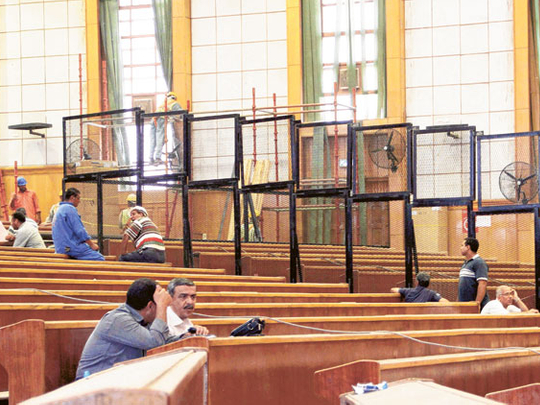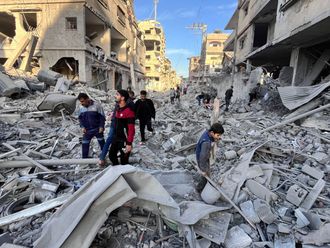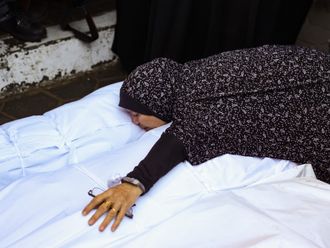
Cairo: Until the anti-government protests erupted on January 25, Egyptian President Hosni Mubarak seemed untouchable as president of the most populous nation in the Arab world, backed by the US and the military from whose ranks he had emerged.
Now 83, Mubarak had survived ten attempts on his life and his health was also a subject of speculation. In the end, it was the people who brought down Egypt's latter-day pharaoh.
His rise to power came unexpectedly, when his predecessor Anwar Sadat, who made history by signing a peace deal with Israel, was gunned down by militants on October 6, 1981 at a military parade in Cairo. Mubarak took office a week later, and then ruled without interruption until February this year.
Islamic fundamentalist groups — including Al Jihad, Jamaa Islamiyya and Talaeh Al Fatah — were responsible for most of the attempts on Mubarak's life.
The first direct attempt came in 1993, a year after fundamentalists launched a campaign of violence aimed at toppling the secular Egyptian government, when a bid to fire rockets at his plush Cairo residence was foiled. Later murder attempts included a plot to car-bomb the presidential motorcade in Cairo.
Taboo subject
Mubarak's health was usually a taboo subject in Egypt and the father-of-two, whose wife Suzanne is half Welsh, kept his private life a carefully guarded secret. In 2007, speculation about his health snowballed to the extent that Mubarak made an unscheduled public appearance to lay rumours to rest.
The octogenarian, with jet black hair — possibly dyed — and aquiline nose, was born on May 4, 1928 in the Nile Delta village of Menufiyah. He rose through the ranks of the air force and fought in repeated wars with Israel, to claim hero status, before supporting Sadat in pursuing peace with the Jewish state in 1979.
Throughout his years in power, Mubarak maintained the unpopular policy of peace with Israel and accommodation with the West that cost Anwar Sadat his life.
His government was the frequent target of domestic opposition. But the regime quashed militant groups which carried out attacks in the 1980s, 1990s and, more recently, 2004 and 2006 when the tourism industry was targeted.












